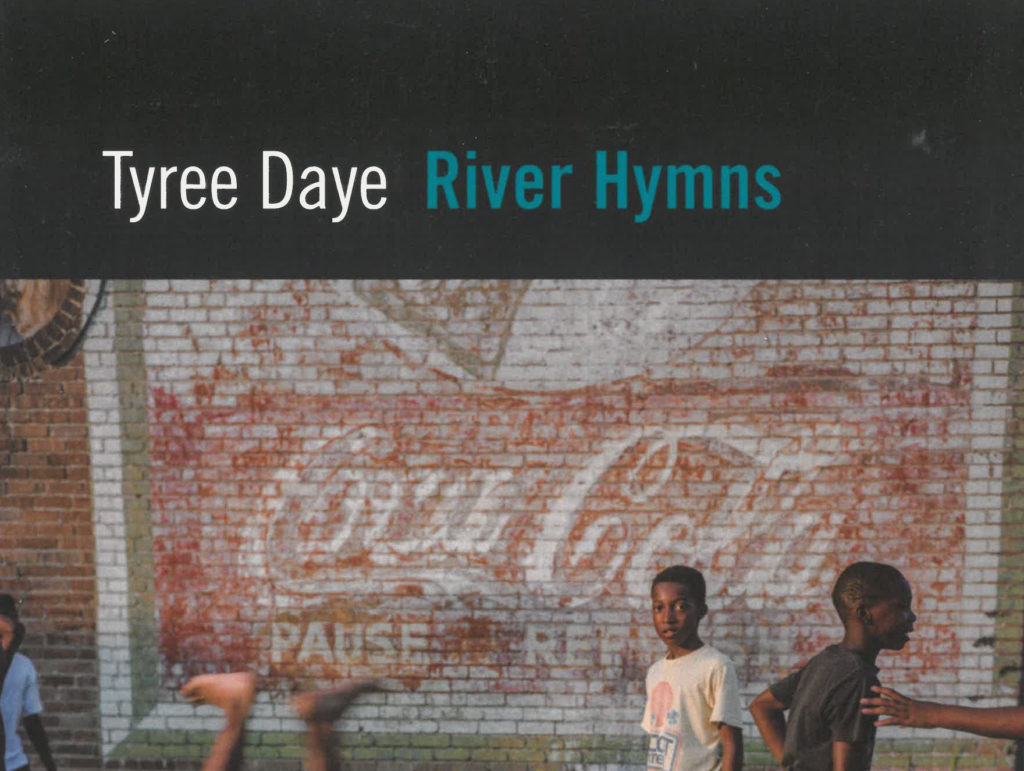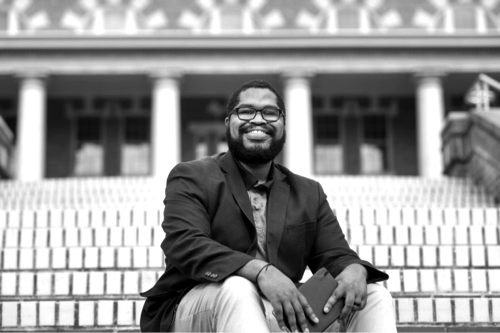“What does my ‘I’ have to become around its dead?”: A Conversation with Tyree Daye

Tyree Daye’s River Hymns is haunting in all the ways one wants to be haunted by poems. The speaker reckons with home and hometown, talks to and through living and deceased family members, and imbibes music and musicality—I cannot recommend it enough. Here are the author’s own words about River Hymns (2019 Kate Tufts Discovery Award finalist) and more.
SP: I’m always interested in poets’ relationships to their speakers, especially in a collection that’s so rooted in the personal. Some view their speaker as a clear extension of themselves; others see the speaker as a persona, more distant and removed. What is your relationship to your speaker?
TD: Lately, I’ve been thinking about who the “I” is in my poems quite a bit. I’ve been exploring the metaphysical “I,” thinking of the “I” as a performer, asking the question of what does my “I” have to become around its dead? In River Hymns, I believe that I am attempting an extension of myself, but also not realizing that my I is a combination of the Is that came before it (grandmothers, grandfathers, aunts, cousins). It’s done through other ways, but there’s not a moment where I stop and truly recognize that my “I” wasn’t built alone.

What are some of your present concerns re: poetics, subject matter, and perspective?
I can say that I’m in the spirit realm of my cave, so it makes sense that I’ve become more interested in writing the metaphysical “I,” an “I” that can move among the dead. My second collection Cardinal, out in September of 2020 by Copper Canyon Press, explores narratives around the Great Migration and my and my ancestor’s migration or non-migration. It is thinking about where black Americans can go to be safe. But Cardinal is very much a cousin of River Hymns in that they share the obsession of the dead and land.
What is it about the poetic voice (as opposed to other mediums) that amplifies one’s life story? What do you think is unique about the poetic voice and its capacity for storytelling?
A voice like the “I” in the poem is made from the I’s before it and the environment that the voice was developed in. Voice is authentic, but like the “I,” it’s a performer. A performer in that it knows what the readers want—so it gives it to them, but not exactly how they would expect it.
River Hymns H has many references to musicians and the language itself is so musically aware. What role does music play in your life and poems?
Music is constant in our house—we sleep with Nina, shower with Prince, and cook with Bob Marley. I listen to music to capture the right tone in a poem. I’ll ask myself, how can I write the tone of a Nina Simone song into this poem? Or the worried, sexy tone Prince can capture in a song? I use music to try to capture the tone of each day. I usually have a theme song for each day. Lately, my theme songs have been from Prince’s Piano and a Microphone 1983 album.
What are you reading lately? Are there any authors who are inspiring you?
I’m currently reading a few anthologies: The Ecopoetry Anthology edited by Ann Fisher-Wirth and Laura-Gray Street and Metaphysical Poetry (Penguin). I’m constantly reading Angles of Ascent: A Norton Anthology of Contemporary African American Poetry edited by Charles H. Rowell. I’ve had the great privilege of working at UNC-Chapel Hill with Gabrielle Calvocoressi, and watching this poet move through the world with such joy has been so inspiring.
—
Find out more about Tyree Daye and his work here.
–Stacey Park
Share